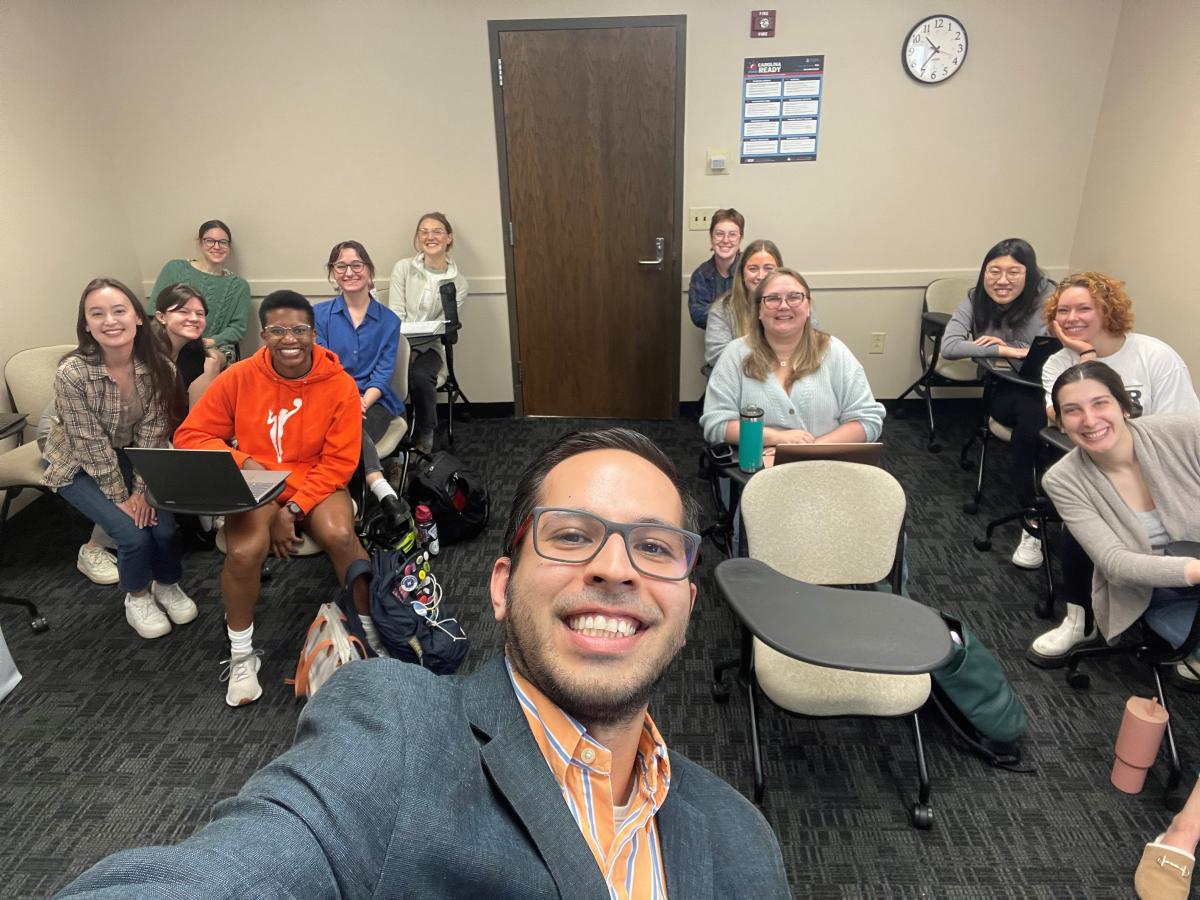Launching a new course is an exciting endeavor, if a little nerve-wracking, for the faculty member introducing the content to its newest audience. Juan Hincapie-Castillo, PharmD, PhD, assistant professor in the Department of Epidemiology at UNC-Chapel Hill Gillings School of Global Public Health, jumped into the pool spring semester 2024 with Chapel Hill’s newest course for graduate MPH and PhD students: Introduction to Legal Epidemiology.
The course focuses on applied legal epidemiology, addressing quantitative methods and providing practical guidance and resources to graduate residential students in the School of Public Health.
“We looked at the published CDC competencies in legal epidemiology and focused our syllabus in the first two tiers,” said Hincapie-Castillo. “Our goal was to create a course that would focus on the fundamental theories of public health law and the contribution of epidemiologic reasoning to the design of studies evaluating the impact of these laws on public health.”

Because the course was designed for public health students, the class started with an introduction to the basics of US governance and public health law, something students agreed was helpful and necessary to set everyone at the same baseline and provide a foundation for the methods-heavy coursework to follow.
“The law side of legal epidemiology was one area I felt I had the least experience, as someone with a public health background. I found it so helpful to better understand the role and functions of law, and the role lawyers play in day-to-day governance,” said Emily Wichmann, a second-year MPH student in applied epidemiology who took the course.
The course was launched in spring 2024 under a “placeholder” credit. Hincapie-Castillo recommends using this experimental approach with a limited enrollment for the first offering — in this case 12 students and two auditors — and then using course evaluations after one month and the end of the semester to help refine the syllabus before moving to an established course in the graduate curriculum.
“We had buy-in from leadership, that always makes things easier,” said Hincapie-Castillo. “They were more curious than skeptical, and we had support from colleagues at CPHLR and others who had worked through similar processes at their institutions.”
A self-described “epi nerd,” Wichmann described an enjoyable, interactive course that balanced methods-heavy learning with conversations with guest lecturers and other material that personalized the relationship between laws and policies and public health. Hincapie-Castillo assigned readings, like a chapter from Mikki Kendall’s Hood Feminism, during a unit where the class discussed sugar sweetened beverage excise taxes.
“People don’t always realize how applicable legal epi is to so many different areas of public health — infectious diseases, pharmacology, economics. Understanding policy and methods that analyze law, data and health outcomes is so important,” said Wichmann. “I was so excited for this course!”
At present, the course is scheduled to run every other spring after 2025.
If you’re interested in the syllabus for EPID799B Introduction to Legal Epidemiology, contact Juan Hincapie-Castillo.
Photo courtesy Juan Hincapie-Castillo
